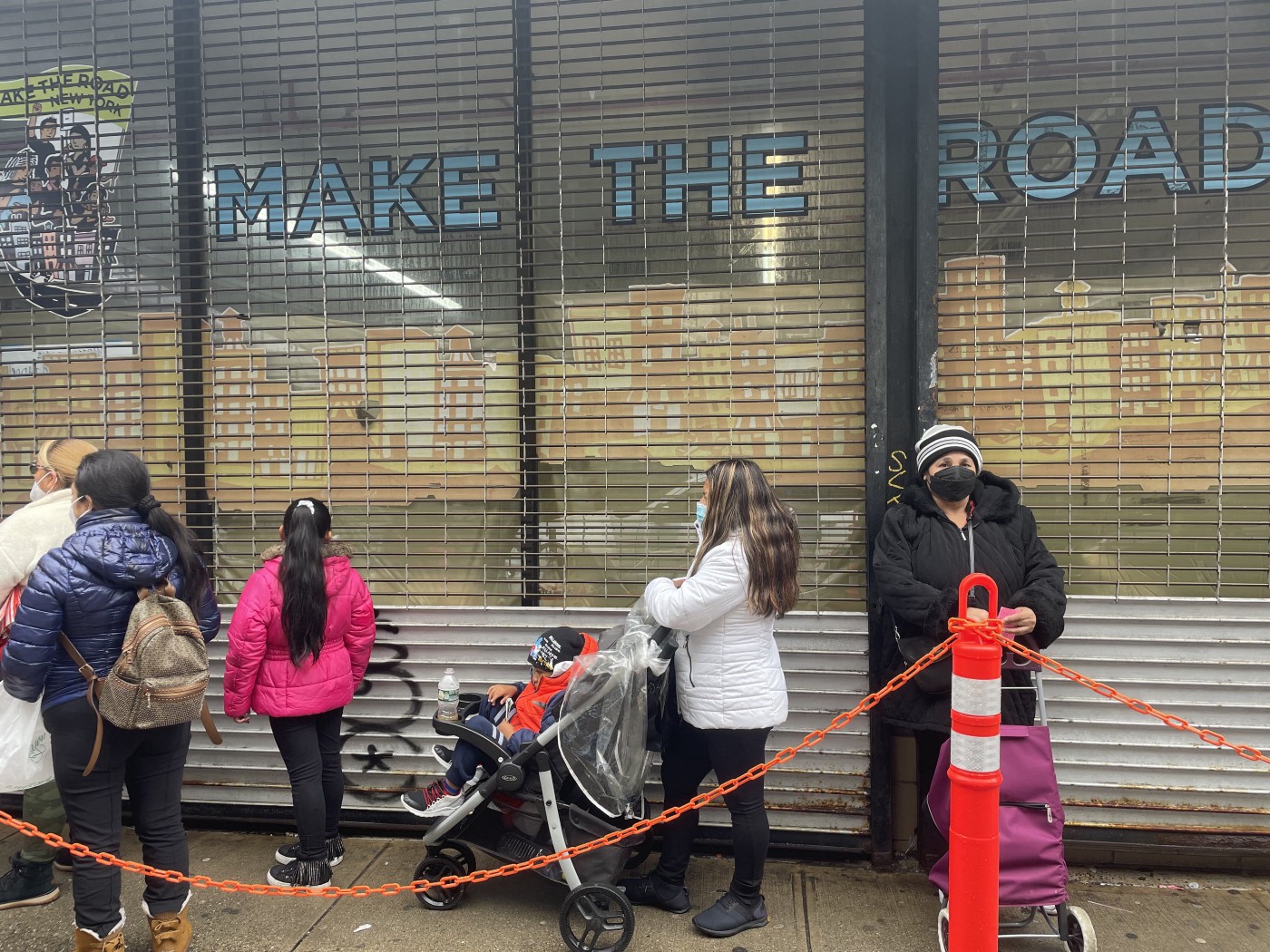
Mohammed Salim was waiting outside Make The Road New York’s food pantry on a recent Wednesday morning in Jackson Heights, where he goes every month for a supply of produce.
He wasn’t happy about it.
“I am not proud to be here, but I don’t think I have a choice. I either pay for my food or pay for my rent,” he said. “I haven’t even told my kids.”
After the onset of the pandemic, pantries at organizations such as Make The Road and Elmcor Youth and Adult Activities have borne much of the brunt of feeding the immigrant community in Queens. Without consistent employment or access to relief that was often provided to citizens, many migrants turned to food banks.
Meanwhile, relief agencies have faced their own challenges. A 2021 report by Food Bank for New York City–a nonprofit that also supplies food to pantries–states that citywide, closures of soup kitchens and pantries rose by 47% compared to 2019, while the number of first-time visitors rose by 93%.
Now, many residents find themselves squeezed by soaring food prices and by wages that don’t match the inflation rate. While many immigrants have been able to find employment, their dependence on food pantries remains. “The pantry helps me save a lot of money, especially after everything has opened up,” said Salim.
Before the pandemic, Salim worked as a cook at a Pakistani restaurant in Jackson Heights, where he earned around $18 an hour. After the restaurant shut, he used his savings to manage household expenses. Though he found another restaurant job, he started visiting Make The Road’s food pantry in August 2021. “I was working, but everything was so expensive, I needed to get those savings up again.”
Despite finding employment at a kebab shop nearby, Salim, a father of two teenage boys, noticed that he couldn’t save more than $100 a month. “We need those savings. My kids are going to go to college soon, or I hope so,” he said.
Food prices have been especially vulnerable to inflation. The U.S. Bureau of Labor Statistics has reported that prices of food products have gone up roughly 11% since last October. Eggs, one of the cheapest forms of nutrition, have risen over 39% since last year.
To cope with this demand, Make the Road has had to adjust its own donations. Before the pandemic, the organization would provide food once a month for each enrolled client. Shortly after the Covid-19 panedmic broke out, they changed that to once every two months. “There used to be lines around the block, going on for ages,” said Stephanie Rodriguez, the coordinator for Make The Road’s food pantry.
Make the Road went back to giving monthly supplies five months ago, but some adjustments have remained.
Before the pandemic hit, Make the Road used to offer around eight kinds of produce, along with grains, fruit and fresh meat or fish.
These days, they often give out just rice, cereal, beans and vegetables. “Last week, we managed to get some salmon, but that’s very rare. If I want to give fresh meat for a week to 250 people, that’s going to cost me $3,000, which is half my budget for the month,” Rodriguez added.
“We have to make sure that we can give food to everybody. If we get a grant for six months, I have to make sure that it lasts for six months,” she said.
Fernando Meza, who runs the pantry at Elmcor, said he’s had to make adjustments as well.
“We were used to giving food out for a family of eight, and now we have to give it out for four. Canned fruit, canned beans and chicken in particular were all up. I pay roughly around $20 to $30 more for a family.” he said.
Meza said this holds true for bulk orders as well. “A 24-pack of canned fruit was $13, and this year, it’s $23. Canned beans are also up by $10 a pack. Sometimes I’m spending $300 more on a bulk order than I did last year,” he said.
Elmcor has been seeing a rise in the number of visitors since February. “It went down to about 300, and numbers have been slowly picking up. It’s around 400 now,” Meza said.
About the author(s)
Ahan Penkar is a journalist from Delhi currently pursuing an MS in Data Journalism at Columbia University.



